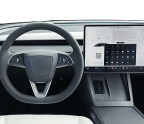I’ve heard all the supposed arguments. It seems every time anything even tangentially related to electric cars is published, certain people feel compelled to share their own research. You’ve probably heard it all, too: A Prius is worse for the planet than a Hummer. EVs are coal-powered cars. Electric cars produce more CO2 than internal combustion engine (ICE) vehicles. Lithium mining is uniquely bad for the environment. Cobalt mining relies largely on slave labor, if not child slave labor. Actually, that last part is sadly true. But the rest? Lies. And I’m not even going to get into the hypocrisy of posting anti-EV rhetoric from a lithium-ion-battery-powered phone or laptop.
The first thing we should talk about is direct versus indirect emissions. Gas-powered vehicles have both direct and indirect emissions, while electric cars—I’m specifically talking about battery-powered vehicles, or BEVs, but we will just call them






